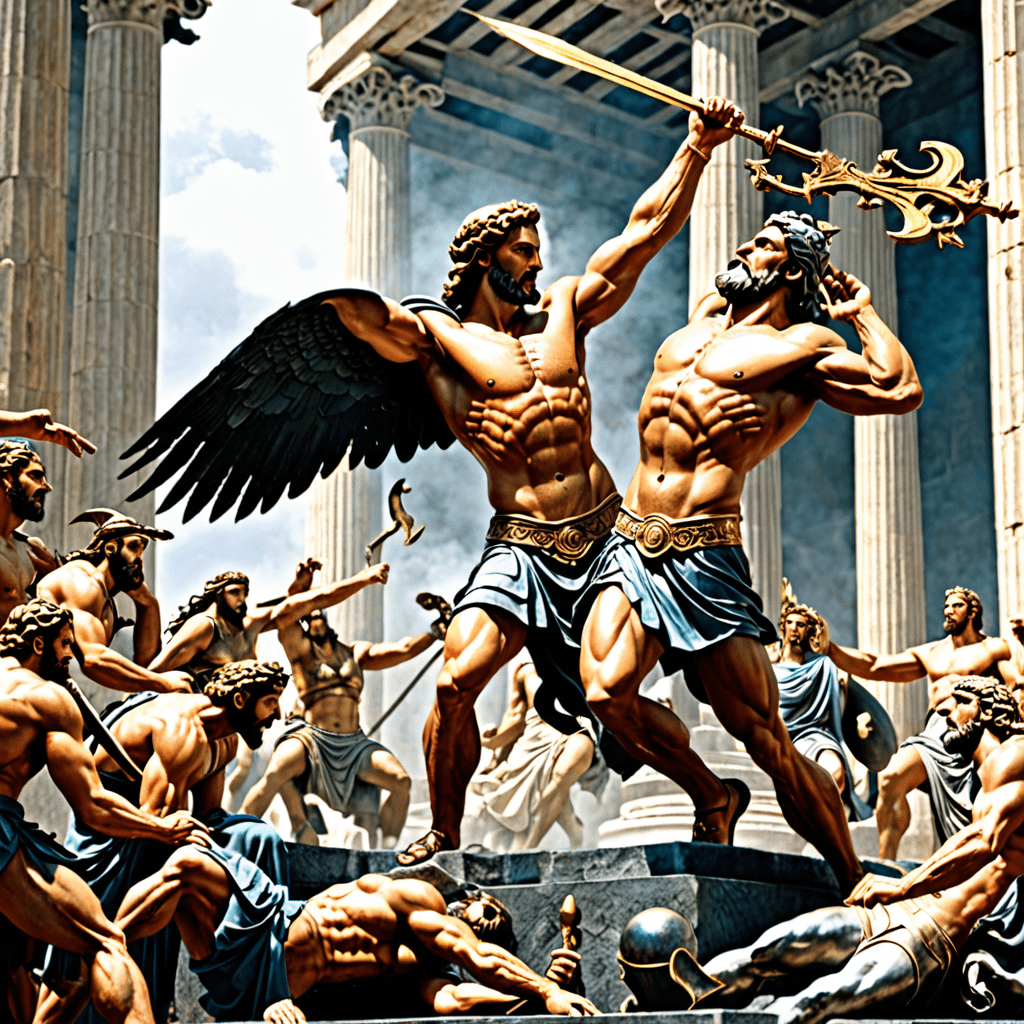The Intriguing Interplay of Greek Mythology and Sacrifice
Greek mythology is rich with tales of gods, heroes, and mortals. The concept of sacrifice is intricately woven
into many of these ancient stories, offering insights into the beliefs and practices of the time. Let’s delve
into the significance of sacrifice in Greek mythology and how it shaped the narratives of the ancient world.
The Role of Sacrifice in Greek Mythology
Sacrifice held a central place in Greek religious rituals and mythological tales. It was a way to honor and
communicate with the gods, seeking favor or appeasement. In myths, gods sought sacrifices as offerings or
tests of loyalty, often demonstrating the power dynamics between humans and the divine.
Types of Sacrifices in Greek Mythology
Various forms of sacrifices existed in Greek mythology, from the ceremonial slaughtering of animals to
offerings of crops or other goods. Heroes like Hercules undertook great labors or sacrifices to prove their
worth or seek forgiveness for transgressions. These acts reinforced the themes of honor, duty, and consequences
embedded in the narratives.
Symbolism and Significance in Sacrificial Acts
The act of sacrifice in Greek mythology was more than a physical offering; it symbolized deeper themes of
devotion, allegiance, and the intricate relationships between mortals and immortals. Sacrificial rituals were
integral to the belief systems of the ancient Greeks, shaping their understanding of the divine and influencing
societal norms.
Lessons Learned from Greek Mythological Sacrifices
Through the lens of Greek mythology, we can extract valuable lessons about the importance of sacrifice,
humility, and the consequences of hubris. The stories of sacrifice in mythical lore serve as parables,
offering moral guidance and reflections on the complexities of human nature and their interactions with the
divine realm.
FAQ: Greek Mythology and Sacrifice
What role did sacrifice play in Greek mythology?
In Greek mythology, sacrifice was a common ritual where offerings were made to the gods. It was believed that sacrifices appeased the deities, sought their favor, or expressed gratitude.
What were the types of sacrifices in Greek mythology?
There were various types of sacrifices, including animal sacrifices like bulls, goats, and lambs, as well as offerings of crops, fruits, and wine. Human sacrifices were extremely rare and usually reserved for extreme circumstances.
Which Greek myths involve the concept of sacrifice?
Several Greek myths involve sacrifice, such as the story of King Agamemnon sacrificing his daughter Iphigenia to appease Artemis during the Trojan War, and the tale of Prometheus sacrificing himself to benefit humanity by stealing fire from the gods.
Why was sacrifice important in Greek culture?
Sacrifice was integral to Greek culture as it reinforced the bond between mortals and gods, demonstrated piety, and maintained cosmic order. It was believed that the gods reciprocated with blessings and protection in return.
Were there any gods associated specifically with sacrifice?
Yes, in Greek mythology, Hestia, the goddess of the hearth, home, and sacrificial flame, was closely related to sacrificial rituals. Additionally, Zeus, as



